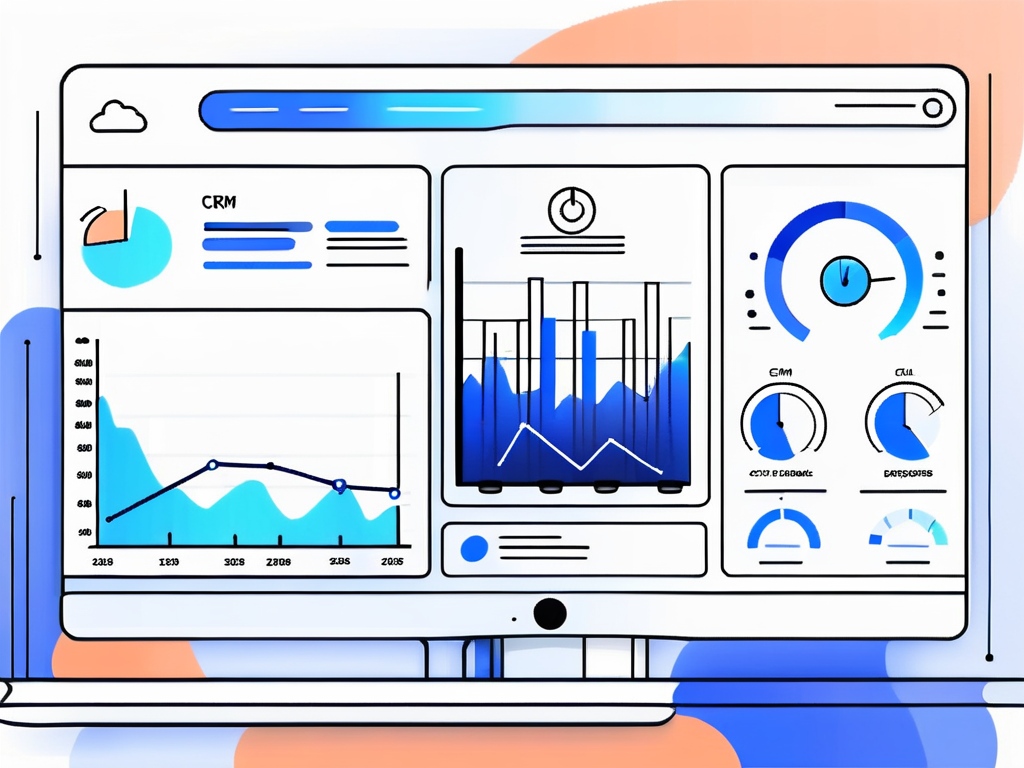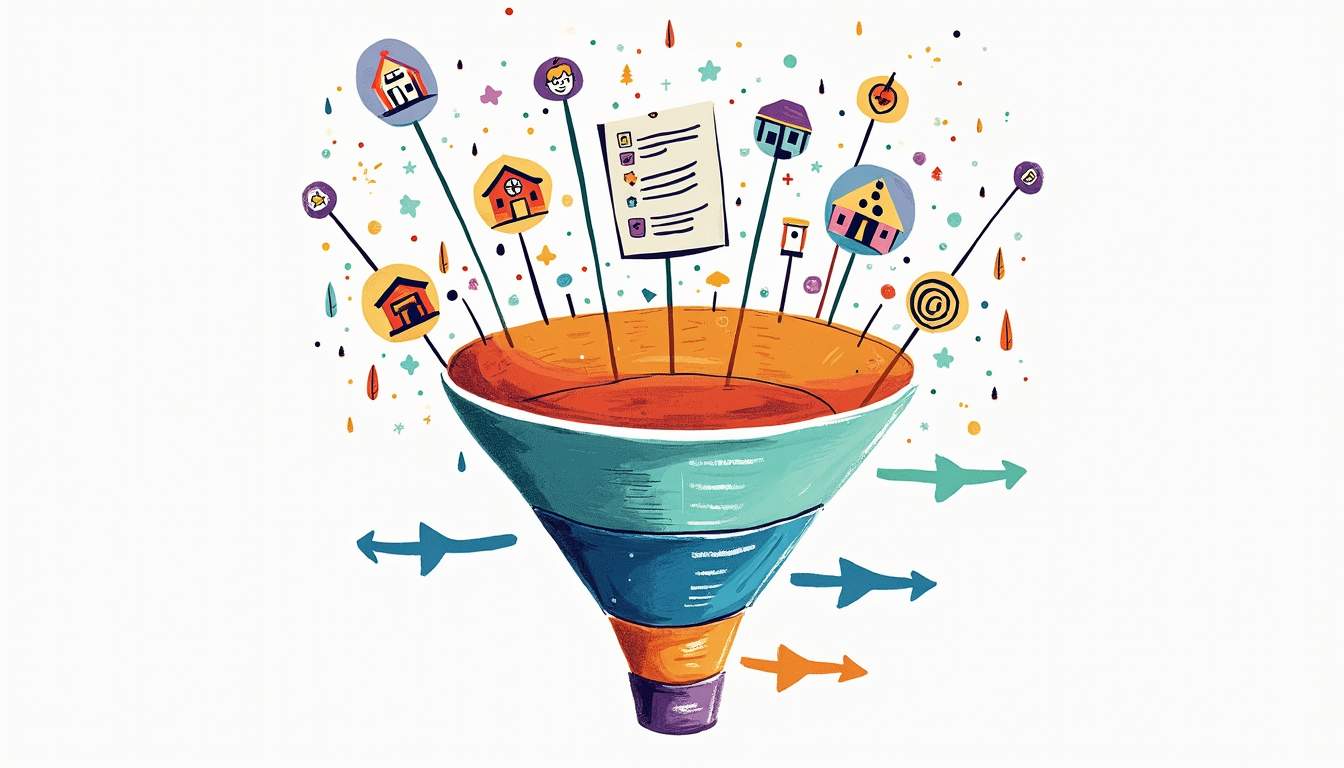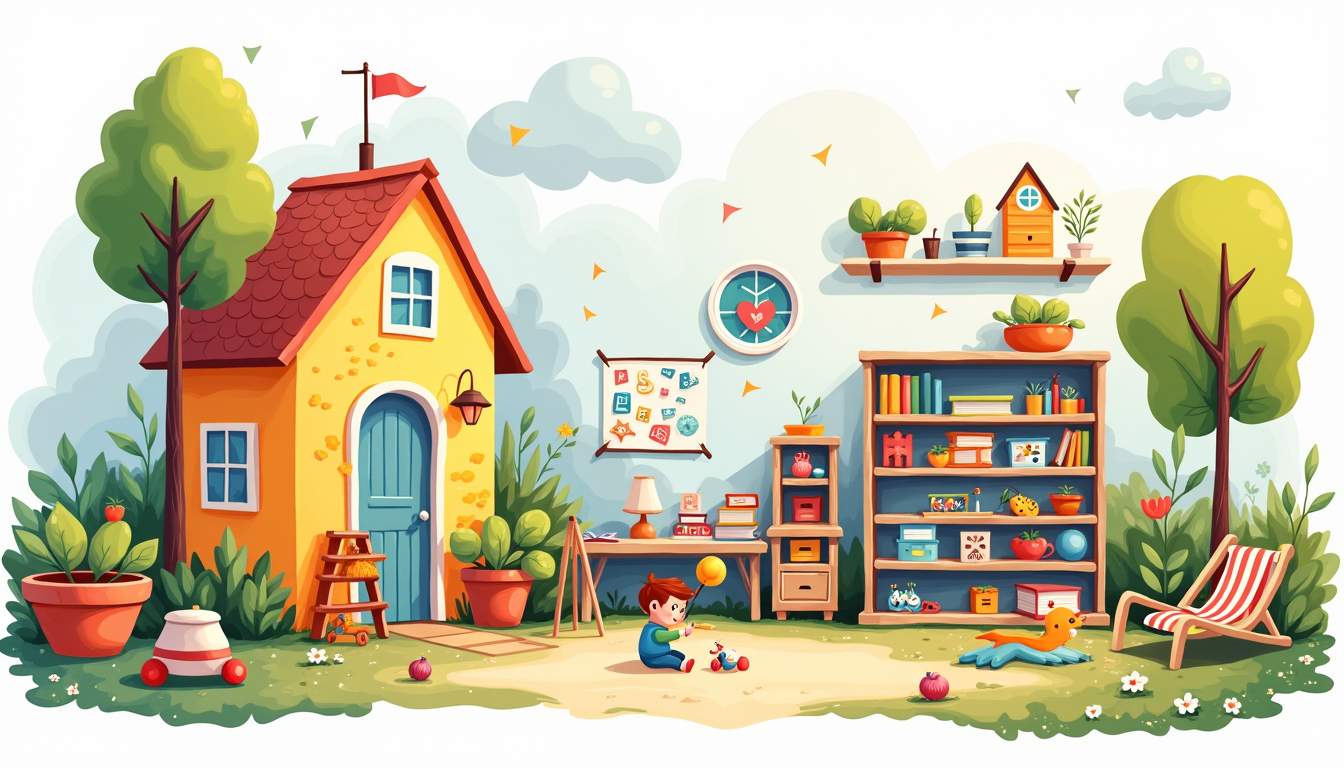In today’s digital age, customer relationship management (CRM) has become essential for businesses of all sizes and industries, including childcare services. By integrating CRM into your childcare service, you can streamline operations, improve communication with parents, and enhance the overall experience for both children and their families. In this step-by-step guide, we will explore the importance of CRM in childcare services and provide you with practical tips for successfully implementing a CRM system.
Understanding the Role of CRM in Childcare Services
Before we delve into the details of integrating CRM into your childcare service, it’s important to understand what CRM is and how it applies to the childcare industry.

Defining CRM in the Context of Childcare
CRM, or customer relationship management, refers to the strategies, processes, and technologies that businesses use to manage and analyze customer interactions and data. In the context of childcare services, CRM involves managing relationships with parents, tracking child development, and providing personalized care.
Benefits of CRM for Childcare Providers
Implementing CRM in your childcare service offers numerous benefits that can help boost efficiency and enhance customer satisfaction. Some of the key advantages include:
1. Improved Parent Communication: CRM systems enable seamless communication with parents through various channels, such as email, SMS, or mobile apps. This allows childcare providers to keep parents informed about their child’s activities, upcoming events, and important updates.
2. Efficient Scheduling and Attendance Tracking: With CRM, you can easily manage class schedules, track attendance, and streamline administrative tasks. This ensures that each child receives the care they need while optimizing the utilization of your resources.
3. Personalized Care and Development Tracking: CRM systems allow childcare providers to maintain detailed records of each child’s preferences, interests, and developmental milestones. This information can help caregivers provide personalized care and tailor activities to meet individual needs.
4. Enhanced Data Analysis: By collecting and analyzing data on parent preferences, child development, and service utilization, CRM systems enable childcare providers to make informed decisions and identify areas for improvement.
One additional benefit of implementing CRM in childcare services is the ability to streamline billing and payment processes. With a CRM system, you can easily generate invoices, track payments, and send reminders to parents. This not only saves time and reduces administrative burden but also ensures that payments are received promptly, improving the financial health of your childcare business.
Another advantage of CRM in childcare services is the ability to create and manage waitlists effectively. With a CRM system, you can maintain a centralized database of prospective parents and their preferences, allowing you to easily match available spots with families who are waiting. This helps optimize enrollment and ensures that your childcare center operates at maximum capacity.
Schedule a FREE 30 minute Session with Us!
Preparing Your Childcare Service for CRM Integration
Prior to integrating CRM into your childcare service, it is important to assess your current systems and identify your specific CRM needs.

Integrating a Customer Relationship Management (CRM) system into your childcare service can revolutionize the way you manage relationships with parents, track child information, and streamline administrative tasks. By centralizing all your data and communication in one platform, you can enhance efficiency and provide a more personalized experience for both parents and staff.
Evaluating Your Current Systems
Begin by evaluating your existing processes and systems, such as your administrative software and communication channels. Identify any pain points or inefficiencies that could be addressed through CRM integration.
Look closely at how information is currently being stored and shared within your childcare service. Are there manual processes that could be automated? Are there communication gaps between staff members or with parents? Understanding these aspects will help you tailor your CRM integration to address these specific challenges.
Identifying Your CRM Needs
Next, determine the specific features and functionalities you require from a CRM system. Consider factors such as parent communication, attendance tracking, child profile management, and reporting capabilities. This will help you narrow down your options when selecting a CRM solution.
Think about the unique needs of your childcare service. Do you require a CRM system that offers mobile accessibility for staff on-the-go? Are automated reminders and notifications important for keeping parents informed? By outlining your priorities, you can ensure that the CRM system you choose aligns with your goals and enhances the overall operations of your childcare service.
Choosing the Right CRM for Your Childcare Service
With a clear understanding of your CRM needs, it’s time to select the right CRM solution for your childcare service. But how do you navigate through the sea of options and find the perfect fit? Let’s dive deeper into the key features you should look for in a CRM and how to assess different CRM vendors.
Key Features to Look for in a CRM
When evaluating CRM options, prioritize the following essential features for your childcare service:
- Easy-to-Use Interface: Look for a CRM system that is intuitive and user-friendly, ensuring that your staff can quickly learn and navigate the system without extensive training. A cluttered and complex interface can hinder productivity and lead to frustration.
- Parent Communication Tools: Choose a CRM that offers multiple communication channels, such as email, SMS, and mobile apps, to ensure efficient and convenient communication with parents. This will enable you to keep parents informed about their child’s activities, upcoming events, and important announcements.
- Attendance Tracking and Scheduling: Opt for a CRM that offers robust attendance tracking and scheduling capabilities to help you manage class schedules, track attendance, and optimize resource utilization. This feature will streamline your operations, reduce administrative burden, and ensure accurate record-keeping.
- Child Profile Management: Ensure that the CRM system allows you to maintain detailed child profiles, including developmental milestones, medical information, and parent preferences. This will help you provide personalized care and tailor your services to meet each child’s unique needs.
- Reporting and Analytics: Look for a CRM solution that provides comprehensive reporting and analytics features. This will enable you to analyze data, track key metrics, and make data-driven decisions for continuous improvement. You can gain valuable insights into enrollment trends, staff performance, and parent satisfaction, allowing you to make informed strategic decisions.
By prioritizing these key features, you can narrow down your options and focus on CRM systems that align with your specific requirements.
Assessing CRM Vendors
When considering different CRM vendors, take the time to research their reputation, customer reviews, and customer support offerings. A reputable vendor with positive customer feedback is more likely to provide a reliable and satisfactory CRM solution. Request demos and trial periods to assess the usability and compatibility of the CRM systems with your specific requirements. This hands-on experience will give you a better understanding of how the CRM works and whether it meets your expectations.
Additionally, consider the vendor’s customer support offerings. A responsive and knowledgeable support team can make a significant difference in your CRM experience. Look for vendors that offer 24/7 support, comprehensive documentation, and training resources to ensure that you can get assistance whenever you need it.
Remember, choosing the right CRM for your childcare service is a crucial decision that can impact your operations and the overall experience of your staff and parents. Take the time to thoroughly evaluate your options and make an informed choice that will support the growth and success of your childcare service.
Schedule a FREE 30 minute Session with Us!
Implementing Your Chosen CRM
Once you have selected a CRM solution that aligns with your childcare service’s needs, it’s time to plan and implement the integration process.
Implementing a CRM system is a significant step towards improving efficiency and enhancing customer relationships. It is essential to approach the integration process strategically to ensure a successful implementation that brings value to your childcare service.
Planning Your CRM Integration
Develop a comprehensive implementation plan that includes tasks, timelines, and responsibilities. Communicate with your staff about the new system, provide training sessions, and create a smooth transition plan to minimize disruptions during the integration.
Consider conducting a thorough analysis of your current processes and workflows to identify areas that can be optimized through CRM integration. Engage key stakeholders in the planning process to gather insights and ensure alignment with your childcare service’s objectives and goals.
Training Your Staff on the New CRM
Ensure that your staff members receive thorough training on the selected CRM system. This will empower them to effectively use the new tools and maximize the benefits of CRM integration. Schedule regular training sessions and provide ongoing support to address any challenges or questions that may arise.
Encourage a culture of continuous learning within your organization to foster adoption and proficiency in using the CRM system. Recognize and reward staff members who demonstrate proficiency in leveraging the CRM tools to drive positive outcomes for your childcare service.
Monitoring and Improving Your CRM Use
Once the CRM system is up and running, it’s important to regularly monitor its performance and make necessary adjustments for optimal use.

Regularly Reviewing CRM Performance
Conduct regular evaluations of your CRM system’s performance to assess its effectiveness in meeting your childcare service’s goals and objectives. Analyze data, solicit feedback from staff and parents, and identify areas for improvement.
Making Necessary Adjustments for Optimal Use
Based on your reviews and feedback, make any necessary adjustments to optimize your CRM use. This may involve tweaking processes, customizing features, or providing additional training to address specific needs.
By following this step-by-step guide, you can successfully integrate CRM into your childcare service, unlocking numerous benefits for both your business and the families you serve. Embrace the power of CRM and take your childcare service to new heights of efficiency, personalization, and customer satisfaction.







Share